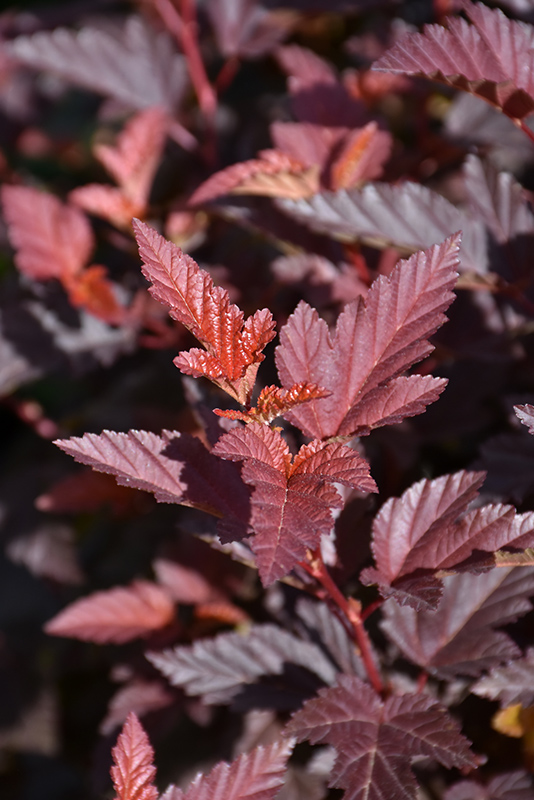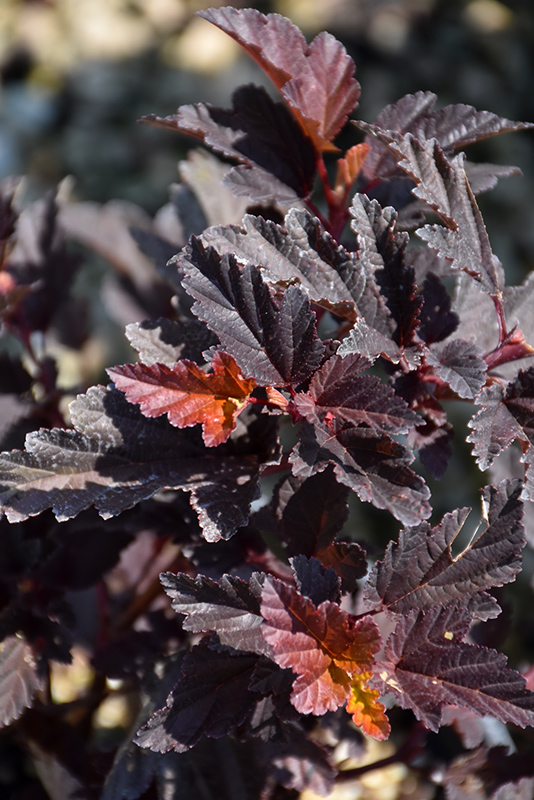Gertens Plant Finder
Angel® Ninebark
Physocarpus opulifolius 'Hoogi016'
Height: 3 feet
Spread: 3 feet
Sunlight:
![]()
![]()
Hardiness Zone: 3a
Other Names: Angel Ninebark; Eastern Ninebark
Description:
This stunning garden shrub is a very compact variety; foliage emerges orange and matures to reddish-purple, contrasting the showy white flowers in spring; also has interesting peeling bark; an excellent choice for a smaller area
Ornamental Features
Angel® Ninebark features showy corymbs of white flowers at the ends of the branches from late spring to early summer. It has attractive deep purple foliage with hints of red which emerges orange in spring. The small serrated lobed leaves are highly ornamental and turn outstanding shades of orange and in the fall. It produces red berries from late summer to mid fall. The dark red stems can be quite attractive.
Landscape Attributes
Angel® Ninebark is a multi-stemmed deciduous shrub with a more or less rounded form. Its relatively fine texture sets it apart from other landscape plants with less refined foliage.
This shrub will require occasional maintenance and upkeep, and can be pruned at anytime. It has no significant negative characteristics.
Angel® Ninebark is recommended for the following landscape applications;
- Accent
- Mass Planting
- Hedges/Screening
- General Garden Use
- Container Planting
Planting & Growing
Angel® Ninebark will grow to be about 3 feet tall at maturity, with a spread of 3 feet. It has a low canopy. It grows at a medium rate, and under ideal conditions can be expected to live for approximately 30 years.
This shrub does best in full sun to partial shade. It is very adaptable to both dry and moist locations, and should do just fine under typical garden conditions. It is not particular as to soil type or pH. It is highly tolerant of urban pollution and will even thrive in inner city environments. This is a selection of a native North American species.
Angel® Ninebark makes a fine choice for the outdoor landscape, but it is also well-suited for use in outdoor pots and containers. Because of its height, it is often used as a 'thriller' in the 'spiller-thriller-filler' container combination; plant it near the center of the pot, surrounded by smaller plants and those that spill over the edges. It is even sizeable enough that it can be grown alone in a suitable container. Note that when grown in a container, it may not perform exactly as indicated on the tag - this is to be expected. Also note that when growing plants in outdoor containers and baskets, they may require more frequent waterings than they would in the yard or garden. Be aware that in our climate, most plants cannot be expected to survive the winter if left in containers outdoors, and this plant is no exception. Contact our experts for more information on how to protect it over the winter months.
Buy Now on Gertens.com:



